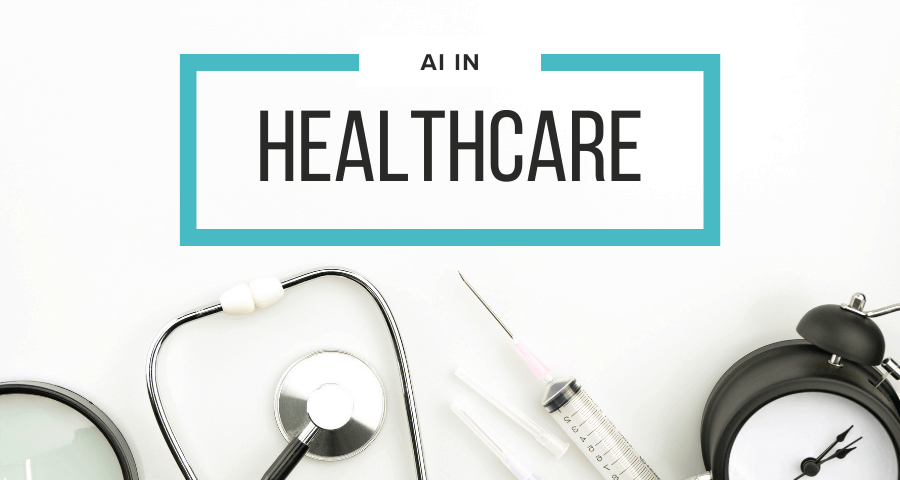The integration of Artificial Intelligence (AI) into healthcare in 2024 represents a pivotal moment in medical history. This year has seen unprecedented advancements, where AI is not just an auxiliary tool but a central player in transforming patient care, research, diagnosis, and treatment. The landscape of healthcare is evolving at a rapid pace, with AI leading the charge towards a future where technology and human expertise blend to save more lives, reduce inefficiencies, and offer personalized patient care like never before.
Revolutionizing Diagnosis and Treatment
AI’s impact on diagnosis and treatment has been profound. Machine learning algorithms, with their ability to process and analyze vast datasets beyond human capability, have led to earlier and more accurate diagnoses of diseases such as cancer, heart disease, and neurological disorders. In 2024, AI-enabled diagnostic tools have become more sophisticated, utilizing patterns in data to identify diseases at stages when they are more treatable and less devastating financially and emotionally to patients.
Moreover, AI-driven predictive models have significantly advanced treatment protocols by anticipating patient responses to various treatment plans. Personalized medicine, powered by AI, tailors treatments to individual genetic profiles, lifestyle, and health history, significantly increasing the efficacy of treatments while reducing side effects.
Enhancing Patient Care with Virtual Health Assistants
The emergence of AI-powered virtual health assistants has marked a new era in patient care. These intelligent assistants provide 24/7 support to patients, offering medication reminders, answering health-related queries, and monitoring health status through wearable technology. In 2024, these assistants have become more advanced, capable of interpreting emotional cues from voice and text to provide empathy and support, thereby reducing the burden on human healthcare providers and ensuring constant care for patients.
Streamlining Operations and Reducing Costs
AI has played a crucial role in streamlining healthcare operations and reducing costs. Through predictive analytics, healthcare facilities can now forecast patient admissions, manage staff allocation more efficiently, and optimize resource utilization. AI-driven systems have also automated administrative tasks such as patient scheduling, billing, and claims management, freeing up healthcare professionals to focus on patient care. The reduction in operational inefficiencies and administrative overhead has not only improved the quality of care but also made healthcare more affordable for patients.
Advancing Drug Discovery and Development
AI’s contribution to drug discovery and development has been revolutionary. By analyzing biological and chemical data, AI algorithms have accelerated the identification of potential drug candidates and optimized drug design processes. In 2024, AI-powered platforms have reduced the time and cost associated with bringing new drugs to market, enabling pharmaceutical companies to focus on developing treatments for diseases that were previously considered untreatable.
Ensuring Equity in Healthcare
One of the most significant impacts of AI in healthcare has been its ability to bridge the gap in healthcare accessibility and equity. AI-driven telemedicine platforms have extended healthcare services to remote and underserved areas, providing high-quality care to those who previously had limited access. Furthermore, AI has been instrumental in identifying and addressing biases in healthcare delivery, ensuring that all patients receive equitable care regardless of their background.
Challenges and Ethical Considerations
Despite its numerous benefits, the integration of AI in healthcare has not been without challenges. Data privacy and security concerns have been at the forefront, with the need for robust mechanisms to protect sensitive patient information. Additionally, the ethical implications of AI decision-making in healthcare have sparked debate, particularly in areas involving life-and-death decisions.
To address these challenges, regulatory frameworks and ethical guidelines for AI in healthcare have been developed and refined. These measures aim to ensure that AI technologies are used responsibly, with a focus on patient safety, privacy, and the public good.
As we look towards the future, it is clear that AI will continue to play a pivotal role in healthcare. The ongoing research and development in AI technologies promise even more innovative solutions to healthcare challenges, making healthcare more personalized, efficient, and accessible.
The integration of AI into healthcare in 2024 has not just been about adopting new technologies; it has been about reimagining what healthcare can be. With AI, we are witnessing the dawn of a new era in healthcare, one where technology and human expertise come together to improve lives on a global scale. The journey of AI in healthcare is far from over, and its full potential is yet to be realized. What is certain, however, is that the future of healthcare is bright, with AI leading the way towards a healthier, more equitable world.
In conclusion, AI in healthcare in 2024 is more than just a technological advancement; it’s a transformation that touches every aspect of healthcare, from patient care and diagnostics to operations and drug development. As we continue to navigate the complexities and challenges of integrating AI into healthcare, it’s clear that the focus must always remain on enhancing patient outcomes and ensuring equitable access to healthcare for all. With continued innovation, ethical considerations, and collaborative efforts, AI is set to redefine healthcare for generations to come.
Navigating AI’s Impact on Healthcare
As AI continues to weave its way into the fabric of healthcare, ethical considerations have come to the forefront of the discussion. The balance between leveraging AI for its immense potential benefits while safeguarding patient rights, privacy, and equity is a tightrope walk for healthcare providers, technologists, and policymakers alike.
Data Privacy: A Paramount Concern
In an era where data is as valuable as currency, the protection of patient data privacy is paramount. AI systems require vast amounts of data to learn and make predictions. However, this data is often sensitive, containing personal health information that patients trust healthcare providers to protect. The challenge lies in utilizing this data to fuel AI advancements while ensuring robust data protection measures are in place to prevent breaches and misuse.
The implementation of stricter data protection laws and the development of AI systems with built-in privacy-preserving technologies, such as federated learning, are steps in the right direction. These initiatives aim to maintain the integrity of patient data, ensuring that the benefits of AI do not come at the cost of patient privacy.
Bias and Equity: Ensuring Fairness in AI
Another significant ethical challenge is the potential for AI systems to perpetuate or even exacerbate biases present in healthcare data. These biases can lead to disparities in the quality of care and health outcomes among different populations. Addressing this issue requires a concerted effort to ensure that AI algorithms are trained on diverse datasets that accurately reflect the population as a whole.
Moreover, there’s a growing emphasis on developing AI systems that are transparent and explainable. This transparency allows healthcare providers to understand how AI makes its recommendations, fostering trust among practitioners and patients alike and ensuring that AI supports equitable healthcare practices.
Autonomy and the Human Touch
The rise of AI in healthcare also raises questions about the role of human judgment and patient autonomy. While AI can process vast amounts of data and identify patterns beyond human capabilities, it cannot replace the nuanced understanding and empathy provided by human healthcare providers. Ensuring that AI serves as a tool to augment healthcare, rather than replace the human element, is crucial.
Patient autonomy, or the right of patients to make informed decisions about their care, must remain at the center of healthcare. AI can provide valuable insights and recommendations, but the final decision should always involve a dialogue between the patient and healthcare provider. This collaborative approach ensures that AI enhances the decision-making process without undermining the patient’s autonomy.
The Road Ahead: Shaping a Future with Ethical AI in Healthcare
The future of AI in healthcare is not just about technological innovation but also about shaping an ethical framework that guides the development and implementation of these technologies. This involves ongoing dialogue among technologists, healthcare providers, patients, ethicists, and policymakers to address the ethical challenges that arise.
Education and awareness are key to navigating the ethical landscape of Artificial Intelligence in healthcare. By fostering a deeper understanding of AI’s potential benefits and risks among all stakeholders, we can work towards a future where AI technologies are developed and used responsibly, with a focus on improving health outcomes and upholding the highest ethical standards.
As we continue to explore the boundless possibilities of AI in healthcare, our commitment to ethical principles will ensure that these advancements truly serve the greater good. The journey of integrating AI into healthcare is as much about innovation as it is about ensuring that these technologies are used in ways that respect and enhance human dignity, equity, and the sanctity of patient care. The potential of Artificial Intelligence in healthcare is immense, but its true success will be measured by our ability to navigate these ethical horizons with wisdom and foresight.








